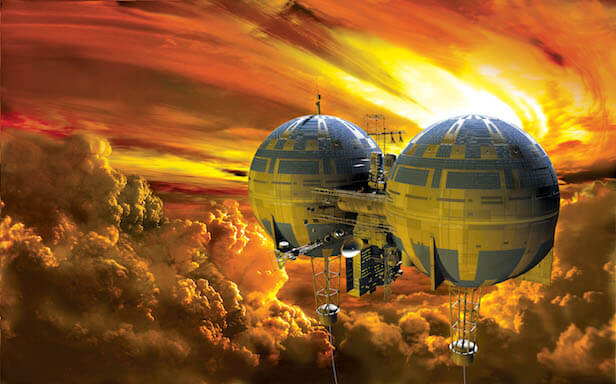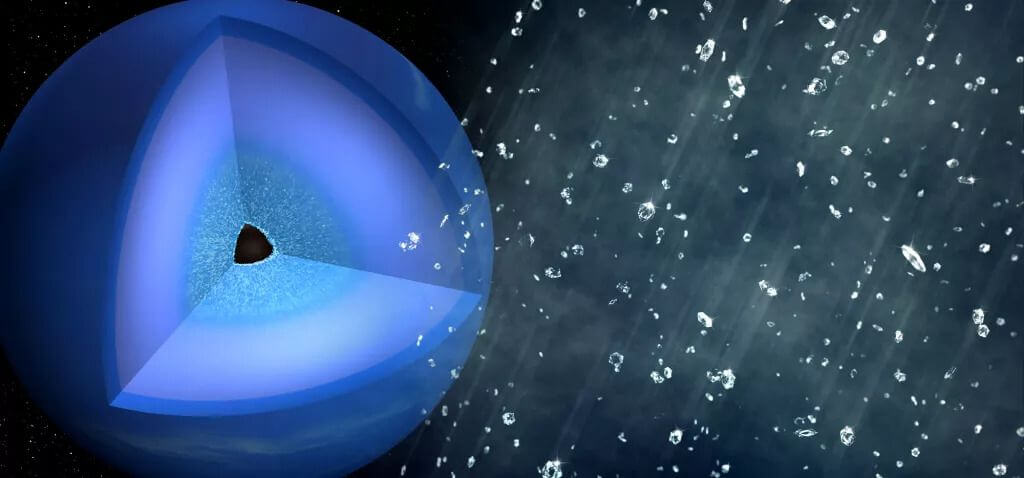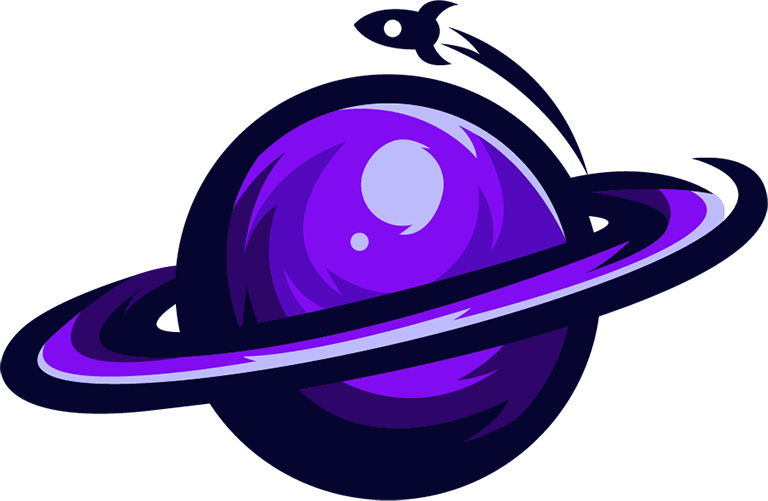What if we colonize venus instead of mars?
The Challenges of Living on Venus: Unveiling the Major Obstacles
Video of the day november 2nd 2019
The Major Issue With Trying To Live On Venus
So the obvious question that you are likely asking is, “Why are we fixating on colonizing Mars when Venus is technically our “sister planet”? Shouldn’t we be trying to get to the planet that is more like us than the one that is barren?
Objectively, you’re technically right, Venus is leagues better than Mars is in certain aspects, including having an atmosphere that isn’t so thin and has certain other prospects that we can work with. However, unlike Mars, Venus has issues that are a bit more immediate and problematic to anyone who tries to colonize.
First and foremost, Venus is a greenhouse planet. Which is almost literally the exact opposite of what Mars is. For while Mars has a very thin atmosphere that has very little gases in it, Venus has a thick atmosphere like Earth, and because of its proximity to the sun, that has unleashed a torrent of hot greenhouse gases that now fill it up.
So prevalent are these gasses that the surface of Venus is hot enough to melt lead. Which means that much like Mars we couldn’t walk the surface without a protective suit. Just as bad, the amounts of gasses within the place are so thick that it’s kind of like moving through the ocean, it’s that dense.
So right off the bat we have a major complication, because while we technically could land on Venus, trying to work within these conditions would be very hard, and would likely be much harder than working on Mars which is only barren.
Does that mean though that Venus is technically uninhabitable? No, it just means that like with Mars…we need to get creative…
Floating Colonies
I want you to picture Star Wars for a second. Specifically, Cloud City from The Empire Strikes Back. Remember how it was a city that was quite literally floating above the clouds? Well, there are some scientists who believe that we could do something like this on Venus and have a better life there than on the ground.
How does that work? Simple, on the ground, the gasses of Venus are so dense and troubling that having a colony there would be problematic. However, the higher you go into the atmosphere, the thinner the gasses get, and scientists have realized that at about 30 miles above the ground there is a sweet spot of Oxygen and other gasses that humans could use to survive long term. As well as a spot that is modest in temperature and pressure exerted.
And how do we get to be in a spot 30 miles above the surface? With a floating city or colony of sorts.
I can hear the question in your mind, “But wouldn’t it be hard to keep the floating city…afloat?” Usually, yes, it would be, which is why barring anti-gravity technology we’ll never have such a city on Earth. However, on Venus, the many gasses in the atmosphere could be used by the blimps or however the colony is built to keep it afloat. It’s actually been proposed before by scientists, and is technically feasible with the technology we have right now.
Plus, unlike a domed colony that we would have to have on Mars or the Moon, if something were to happen to the blimp, say a small tear in the hull, it wouldn’t crash the whole thing or cause a series of catastrophic events that would kill everyone, as Venus’ atmosphere is thick, like Earth’s, so we would have time to fix it before things got bad.
And as noted, the pressure and temperature of the spot in the atmosphere the colony would be means that keeping it cool or warmed wouldn’t take much energy or effort.
It’s not a perfect plan, obviously, there are things that would need to be worked out, like perfectly placing the floating city (of which there are ideas for that to), but it’s an idea, and ideas are what get things going.
The Pull of Venus
Ok, so we’ve established that we could possibly live on Venus, but is there more to it than that? What are the true perks of being on Venus vs. Mars or the Moon or even Saturn’s moon, Titan?
Let’s talk about one aspect you may not have considered, but is vital to human life…gravity. Yeah, gravity. You see, we don’t realize it because we don’t feel gravity’s pull “weighing down” on us, but it’s a constant force in our life, and because of that, our bones are strong. However, in space, or in microgravity, with a lack of that force, long-term journeys in space result in the body’s bone structure breaking down, becoming brittle. This happens on the International Space Station, and rigorous exercise is needed every day to keep their bones strong.
On Mars, and the Moon, and even Titan, the gravity of the planet is MUCH less than Earths. So that means humanity (barring an artificial gravity system) would have to work hard on the colony of those planets each and every day in order to stay fit and healthy.
If you didn’t know, we also talked about what a colonization on Titan and Mars!
But on Venus, because it’s just a little smaller than Earth and has similar mass, the gravity is 9/10’s of what Earth’s is. Which means we’d only be a little lighter, which means our bones wouldn’t deteriorate like they would in other places.
Hence why many people think Venus is better because it’s better suited for our bodies.
 source: spaceanswers
source: spaceanswers
It’s Closer To Earth
Another advantage that Venus would have over Mars is one that is very simple: Distance. The distance to Venus is much closer to that of Mars. At its closest (as the planets orbit the sun and get farther away from each other at points), the Earth is only 38 million kilometers from Venus. Making that the smallest distance that any planet ever is from Earth as a whole. In contrast, the distance from Earth to Mars is 54.6 million kilometers, and in space travel, every kilometer does count.
Which means that flights to Venus could happen much quicker than that to Mars. Scientists estimates that colony travels would happen every 580 days for Venus versus 780 days to Mars, that’s a 200 day difference, which can seem like an eternity at times.
Plus, should humanity be able to increase the speed of its travel through space, those distances become a lot shorter.
Here’s another thing that has to do with distance, the farther you are in space to something, the longer it takes for a signal to travel back to Earth. So if we chose to go to Venus instead of Mars or Titan, that means that any and all communications that are sent from the planet will be picked up much more quickly than a signal picked up from Mars, especially if we have a floating colony.
Again, there are problems with Venus, but the distance thing is something that everyone has to consider if planning out a colony on another planet.
Terraforming?
Terraforming is an idea that has been floated around for many different planets in order to make them more habitable for human life. To those who don’t know what that is, it’s the concept of using technology to alter the structure of the planet in order to make it change. So in the case of Mars, using things like gasses to try and buff up the atmosphere and make it able to hold things like oxygen so that we can breathe.
Or, in the case of Venus, using various particles and gasses and other materials in order to thin out the atmosphere so that we could live at ground level at a good temperature.
Far-fetched? Not so much there have been many thoughts and ideas onto how to help Venus’ atmosphere become more suitable. Such as making “solar shades”, entities that would be put into the atmosphere to block and reflect certain kinds of radiation and solar light so that they don’t reach the planet. There are also ideas that could be used on the planets surface or within the atmosphere to help thin things out.
Should it work, and obviously it hasn’t been tested, that would mean that the surface of Venus would be open to humanity. What’s more, if the atmosphere becomes much more Earth-like in composition and amount of gasses, it would allow the planet to make natural rain, which could mean the birth of oceans and lakes on the planet which scientists theorize were there before the greenhouse effect took over.
Obviously, making the terraforming happen would take a lot of effort and materials, but if it results in another Earth? It could be worth it.
 source: space.com
source: space.com
Have You Ever Seen the Rain?
Thank you to those who got that classic song reference, but it is something we need to consider about Venus. You see, another reason that scientists agree we can’t go right to Venus right now is that the composition of the atmosphere is so bad that it quite literally rains acid. In this case, Sulfuric Acid, which would be deadly to any life on the planet (which is why there isn’t any there…) and would be infinitely problematic to any colonists trying to live there.
After all, human skin would dissolve under that, and it would take custom tools and structures to survive that kind of pelting by the acid rain.
Sadly, that’s not the worst of it. The weather on Venus is full of strong winds and lightning, and the surface itself is full of volcanoes due to pressure and heat and other factors of the planet. It’s been likened to Mordor from Lord of the Rings, minus the Tower of Sauron obviously…but you know…with how the planet is…I wouldn’t be surprised to see a blood-red eye-shaped entity on the planet.
I’m just saying.
The Supplies Issue
Sorry if I’m raining your parade (see what I did there?), but there is another issue that needs to be addressed to those who reside on Venus. And not so ironically it’s a similar issue to those who colonize any other world. The question of long-term sustainment via supplies and materials.
Part of the reason that Earth is such a great place to live on is that we have access to materials in a very easy way. We need wood? We have trees. We need water? There’s a lot of it everywhere if you know where to look. You need something deep down? We have tools to help you get that.
On Venus though, whether we live on the ground somehow or in the air on floating cities, access to the materials that are on the natural parts of the planet won’t be easy to reach, get, or use. Partly because of the atmosphere, partly because of the acid rain, and partly because of the effort that it would take to get it all.
As for Earth, while it could send supplies every three months or so to try and reach the colonists, that would take a lot of time, money, energy, and if something went wrong in the flight of said supplies, the colony would be screwed more than likely. Which is why most colonies try for self-sustainment as quickly as possible so that they don’t have to rely on their motherland to try and bail them out.
Which raises another question…
Could We Grow Things On Colonies On Venus?
This is another question that is being posed of the Mars missions and other attempts at colonization, because right now, the only planet in the solar system we have that has plants is Earth. And even in the floating colonies of Venus that we may have, we’d need plants for various other things like medicine, extra oxygen, and even simple things like creature comforts.
Obviously, we can’t grow them on the surface, so in the floating colonies there would need to be areas dedicated to growing things, not unlike a greenhouse. The question of space would be an issue though. Still it could work, and it could help out a lot.
Plus, if we were able to do terraforming and get the grounds of Venus to be more rich in nutrients and such, we might be able to start planting gardens, forests, and more on the planet, thus making it FAR more habitable than before.
Whether that’ll happen though is still very much up for debate.
The Earth and Venus
So where does that leave us in regards to colonizing Venus? Ironically, it’s about the same place that we are at with mars and beyond. There is potential to colonize Venus, but there are many hurdles that would prevent us from going there right now and trying to set up a settlement.
Thus, while farther and arguably harder in some ways to adapt to, NASA, SpaceX and more are focusing more on Mars as the next place to send humans rather than Venus. But that doesn’t mean our sister planet is totally out of the running for a colony. As humanity has shown in the past, the simplest of things can lead to a major discovery, and that discovery could change how we view Venus as a colonizable planet.
But until that point, it may be too much of a risk to try and set up a colony there, because a lot of things can go wrong, and if they go wrong, we’re screwed.
subscribe to the insane curiosity channel

Subscribe For the Latest news & Updates
Subscribe For the Latest news & Updates
Get in touch with the Insane Curiosity Channel. Once in while you will receive emails about news, promos, and much more. Stay Tuned!
Insane Curiosity
Science made easy
Who we are
Insane Curiosity is a channel of astronomy, physics and future technology, which easily explain science. We need science and science need us!
